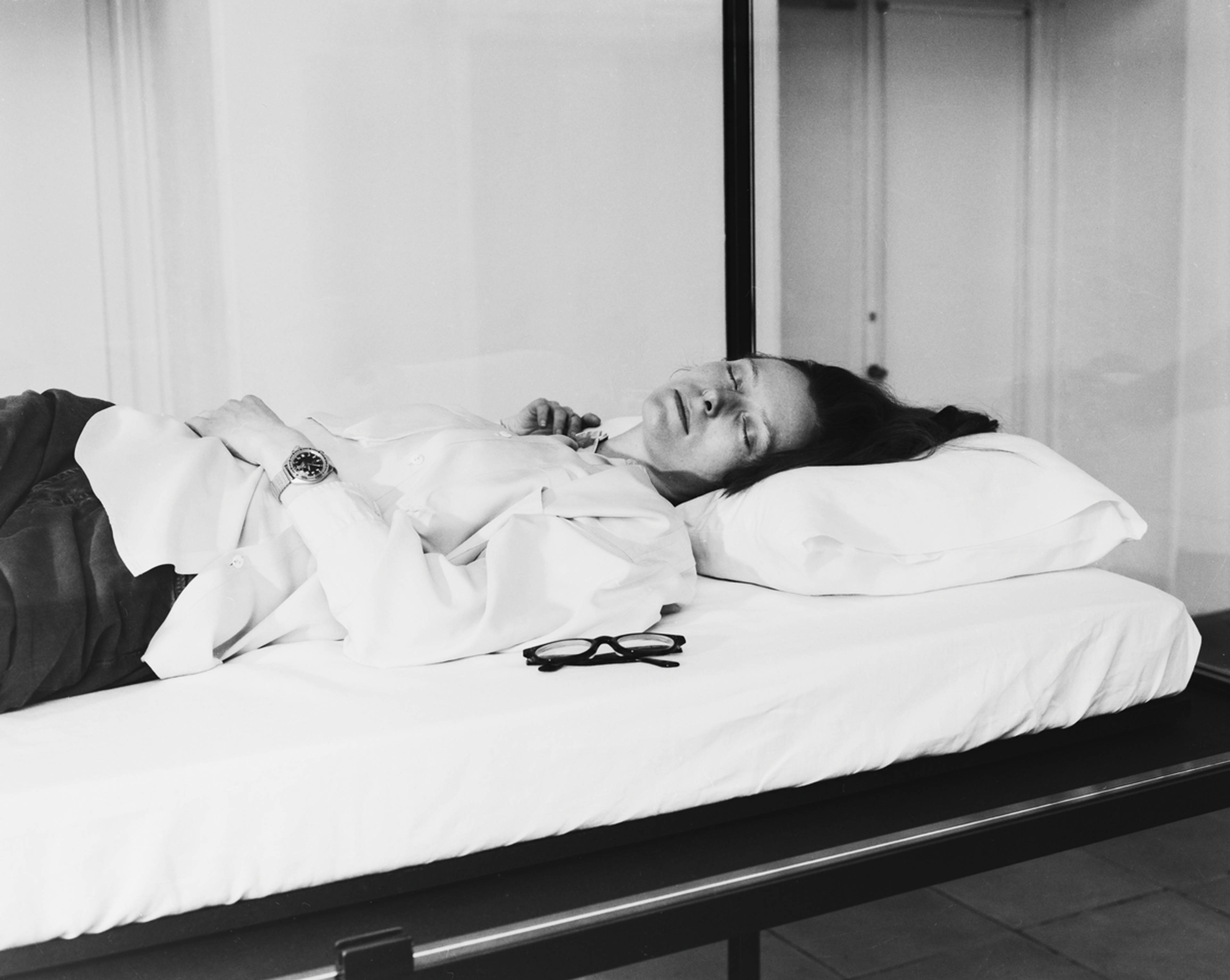Nothing happens at night, the majority of nights. Life is indolent under the blankets, ungregarious, stilled, or rather animated at other latitudes. Maurice Blanchot calls it a border space that can be touched but never fully traversed, as if sleep did not belong to the sleeper. But to whom, then?
In 1995, the actress Tilda Swinton lay on her back for a week under a glass case. Hers was a performance, The Maybe, co-conceived with artist Cornelia Parker, that took place at the Serpentine Galleries in London. The setting is minimalistic: a raised metal frame, immaculate infirmary sheets on a mattress, Swinton’s outfit daytime normcore, OG Vans on. It is not the regalia worn for a Disneyan draped baldachin, nor Lenin’s triumphant sarcophagus, but she is a Very Important Beauty, sleeping once upon a time. Eyes closed, body motionless.
1995 was a time of paparazzi. Private and public were still rivals in all spheres, the bed an invisibility from which celebs didn’t yet post just-woke-up selfies. For non-important persons, too, the bedroom was distinct from the other spaces meant for work, to connect with the outside, organize a date, broadcast one’s own presence …
___
– This text appears in full in Spike #78 – The Night. You can order your copy in our online shop –


